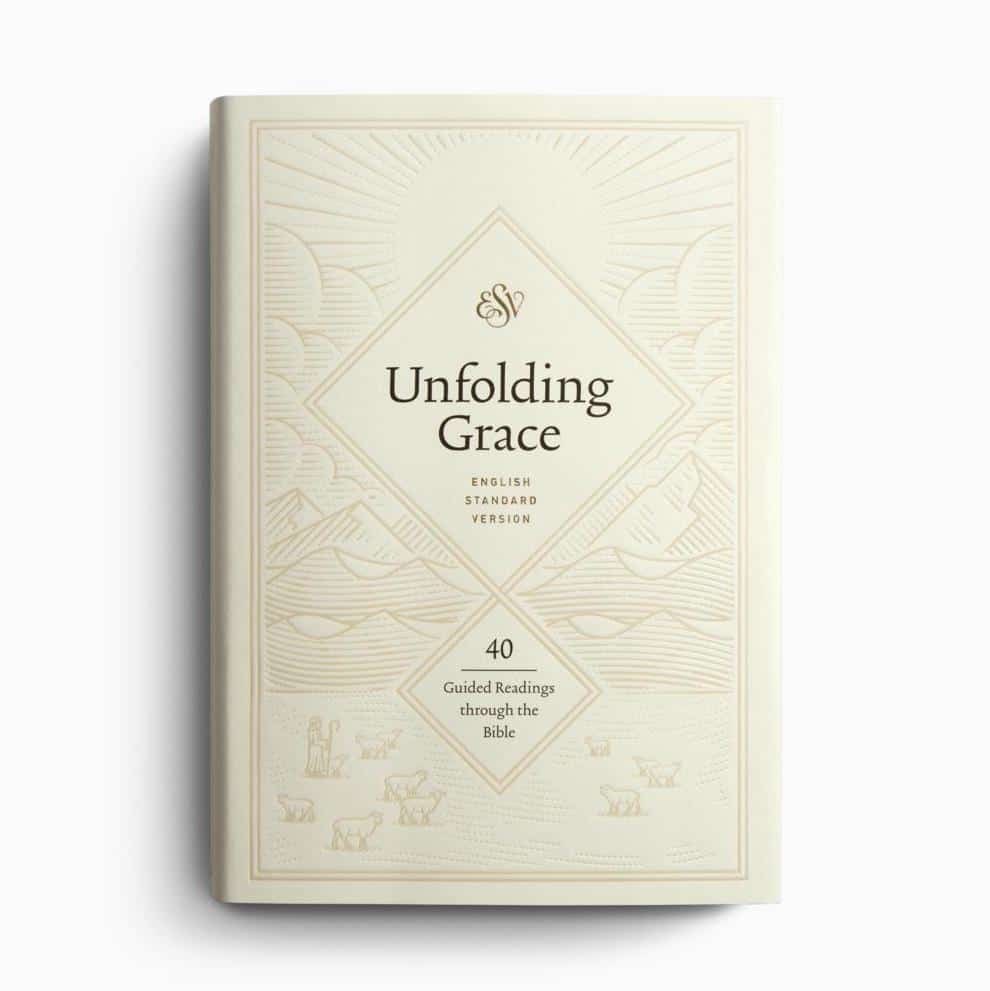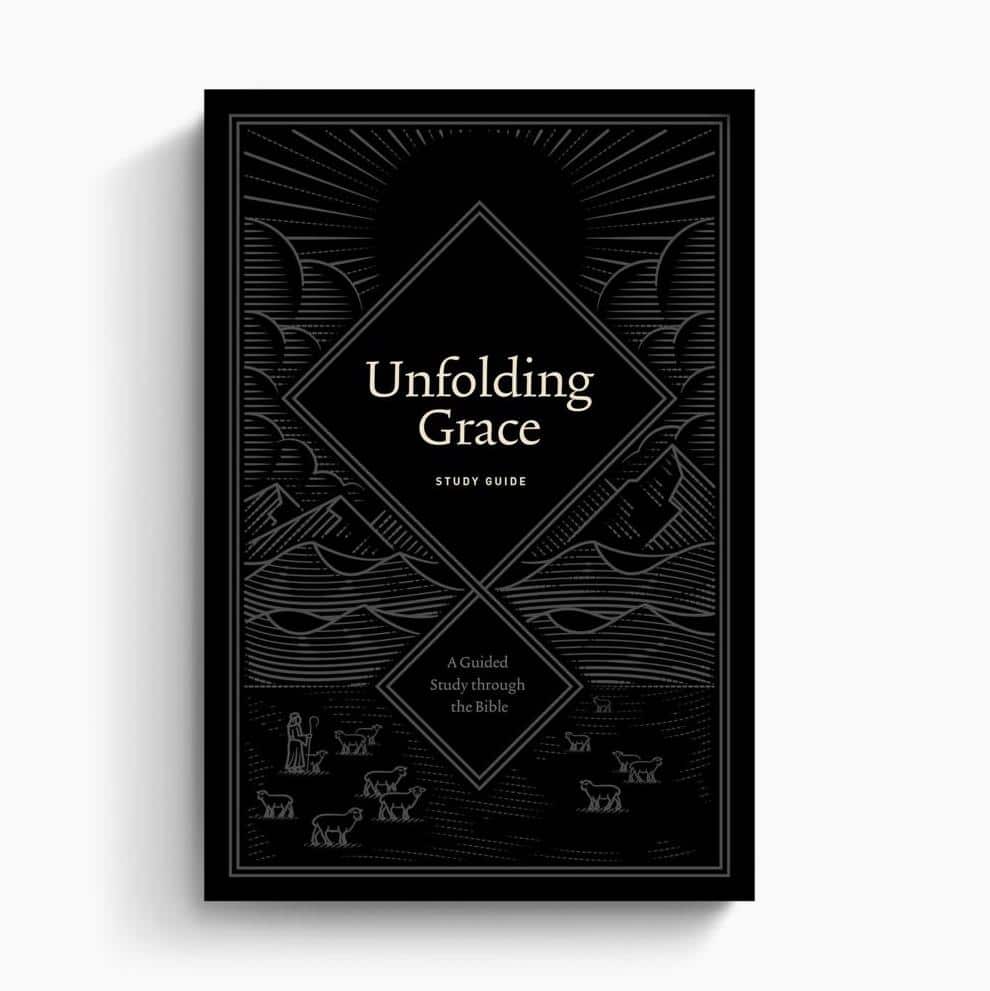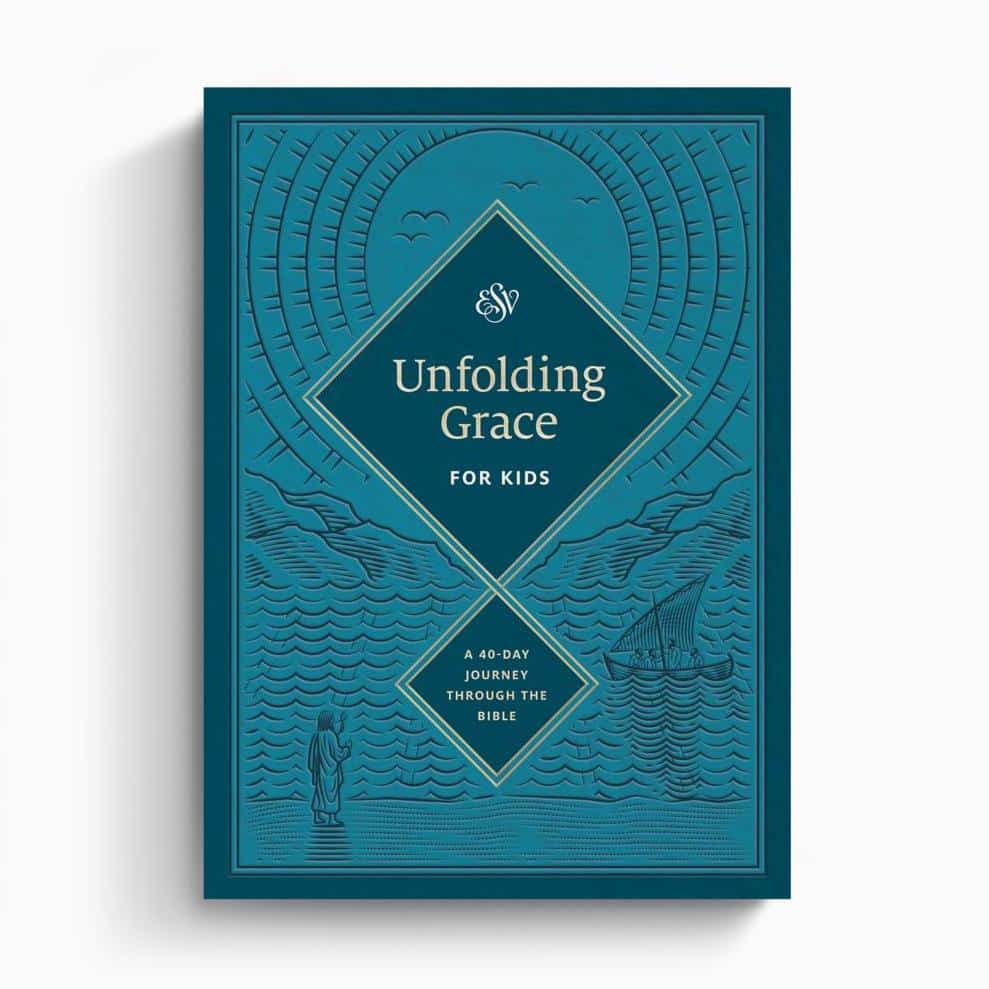LESSON TWENTY-FIVE
The Hope of a New Exodus
God sends Israel prophets throughout their decline, exile, and partial return. The prophets’ twofold message is of both warning and hope—warning of judgment and hope of salvation.
Isaiah shows that God’s future acts will be like his previous acts. The prophet sees God’s prior redemption through the exodus as a pattern for the future, pointing forward to a greater redemption to come.
In the exodus God freed Israel from slavery and spared them from judgment through the Passover sacrifices. Through Isaiah he promises an even greater deliverance—not just from physical bondage in Babylon but from spiritual slavery to sin and death. And he will restore not merely Israel but people from all nations. This redemption will reverse the curse and return us to God.
At the center of this salvation is God’s “servant.” This is a title for Israel, but it also refers to a singular person: one ideal Israelite. The servant will live the faithful life Israel (and humanity) has failed to live, die as a sacrifice for sins, and then rise again in victory. Through this servant God will bring salvation to believing Israelites, and then all nations.
Jesus eventually arrives as this servant to redeem us from our exile from God’s presence. And he does it as Isaiah has promised: through a faithful life, substitutionary death, and victorious resurrection.
SCRIPTURE READING
Isaiah 52-55
Reading Time: 7 Minutes
Awake, awake,
put on your strength, O Zion;
put on your beautiful garments,
O Jerusalem, the holy city;
for there shall no more come into you the uncircumcised and the unclean.
Shake yourself from the dust and arise;
be seated, O Jerusalem;
loose the bonds from your neck,
O captive daughter of Zion.
For thus says the Lord: “You were sold for nothing, and you shall be redeemed without money.” For thus says the Lord God: “My people went down at the first into Egypt to sojourn there, and the Assyrian oppressed them for nothing. Now therefore what have I here,” declares the Lord, “seeing that my people are taken away for nothing? Their rulers wail,” declares the Lord, “and continually all the day my name is despised. Therefore my people shall know my name. Therefore in that day they shall know that it is I who speak; here I am.”
How beautiful upon the mountains
are the feet of him who brings good news,
who publishes peace, who brings good news of happiness,
who publishes salvation,
who says to Zion, “Your God reigns.”
The voice of your watchmen—they lift up their voice;
together they sing for joy;
for eye to eye they see
the return of the Lord to Zion.
Break forth together into singing,
you waste places of Jerusalem,
for the Lord has comforted his people;
he has redeemed Jerusalem.
The Lord has bared his holy arm
before the eyes of all the nations,
and all the ends of the earth shall see
the salvation of our God.
Depart, depart, go out from there;
touch no unclean thing;
go out from the midst of her; purify yourselves,
you who bear the vessels of the Lord.
For you shall not go out in haste,
and you shall not go in flight,
for the Lord will go before you,
and the God of Israel will be your rear guard.
Behold, my servant shall act wisely;
he shall be high and lifted up,
and shall be exalted.
As many were astonished at you —
his appearance was so marred, beyond human semblance,
and his form beyond that of the children of mankind —
so shall he sprinkle many nations.
Kings shall shut their mouths because of him,
for that which has not been told them they see,
and that which they have not heard they understand.
Who has believed what he has heard from us?
And to whom has the arm of the Lord been revealed?
For he grew up before him like a young plant,
and like a root out of dry ground;
he had no form or majesty that we should look at him,
and no beauty that we should desire him.
He was despised and rejected by men,
a man of sorrows and acquainted with grief;
and as one from whom men hide their faces
he was despised, and we esteemed him not.
Surely he has borne our griefs
and carried our sorrows;
yet we esteemed him stricken,
smitten by God, and afflicted.
But he was pierced for our transgressions;
he was crushed for our iniquities;
upon him was the chastisement that brought us peace,
and with his wounds we are healed.
All we like sheep have gone astray;
we have turned—every one—to his own way;
and the Lord has laid on him
the iniquity of us all.
He was oppressed, and he was afflicted,
yet he opened not his mouth;
like a lamb that is led to the slaughter,
and like a sheep that before its shearers is silent,
so he opened not his mouth.
By oppression and judgment he was taken away;
and as for his generation, who considered
that he was cut off out of the land of the living,
stricken for the transgression of my people?
And they made his grave with the wicked
and with a rich man in his death,
although he had done no violence,
and there was no deceit in his mouth.
Yet it was the will of the Lord to crush him;
he has put him to grief;
when his soul makes an offering for guilt,
he shall see his offspring; he shall prolong his days;
the will of the Lord shall prosper in his hand.
Out of the anguish of his soul he shall see and be satisfied;
by his knowledge shall the righteous one, my servant,
make many to be accounted righteous,
and he shall bear their iniquities.
Therefore I will divide him a portion with the many,
and he shall divide the spoil with the strong,
because he poured out his soul to death
and was numbered with the transgressors;
yet he bore the sin of many,
and makes intercession for the transgressors.
“Sing, O barren one, who did not bear;
break forth into singing and cry aloud,
you who have not been in labor!
For the children of the desolate one will be more
than the children of her who is married,” says the Lord.
“Enlarge the place of your tent,
and let the curtains of your habitations be stretched out;
do not hold back; lengthen your cords
and strengthen your stakes.
For you will spread abroad to the right and to the left,
and your offspring will possess the nations
and will people the desolate cities.
“Fear not, for you will not be ashamed;
be not confounded, for you will not be disgraced;
for you will forget the shame of your youth,
and the reproach of your widowhood you will remember no more.
For your Maker is your husband,
the Lord of hosts is his name;
and the Holy One of Israel is your Redeemer,
the God of the whole earth he is called.
For the Lord has called you
like a wife deserted and grieved in spirit,
like a wife of youth when she is cast off,
says your God.
For a brief moment I deserted you,
but with great compassion I will gather you.
In overflowing anger for a moment
I hid my face from you,
but with everlasting love I will have compassion on you,”
says the Lord, your Redeemer.
“This is like the days of Noah to me:
as I swore that the waters of Noah
should no more go over the earth,
so I have sworn that I will not be angry with you,
and will not rebuke you.
For the mountains may depart
and the hills be removed,
but my steadfast love shall not depart from you,
and my covenant of peace shall not be removed,”
says the Lord, who has compassion on you.
“O afflicted one, storm-tossed and not comforted,
behold, I will set your stones in antimony,
and lay your foundations with sapphires.
I will make your pinnacles of agate,
your gates of carbuncles,
and all your wall of precious stones.
All your children shall be taught by the Lord,
and great shall be the peace of your children.
In righteousness you shall be established;
you shall be far from oppression, for you shall not fear;
and from terror, for it shall not come near you.
If anyone stirs up strife,
it is not from me;
whoever stirs up strife with you
shall fall because of you.
Behold, I have created the smith
who blows the fire of coals
and produces a weapon for its purpose.
I have also created the ravager to destroy;
no weapon that is fashioned against you shall succeed,
and you shall refute every tongue that rises
against you in judgment.
This is the heritage of the servants of the Lord
and their vindication from me, declares the Lord.”
“Come, everyone who thirsts,
come to the waters;
and he who has no money,
come, buy and eat!
Come, buy wine and milk
without money and without price.
Why do you spend your money for that which is not bread,
and your labor for that which does not satisfy?
Listen diligently to me, and eat what is good,
and delight yourselves in rich food.
Incline your ear, and come to me;
hear, that your soul may live;
and I will make with you an everlasting covenant,
my steadfast, sure love for David.
Behold, I made him a witness to the peoples,
a leader and commander for the peoples.
Behold, you shall call a nation that you do not know,
and a nation that did not know you shall run to you,
because of the Lord your God, and of the Holy One of Israel,
for he has glorified you.
“Seek the Lord while he may be found;
call upon him while he is near;
let the wicked forsake his way,
and the unrighteous man his thoughts;
let him return to the Lord,
that he may have compassion on him,
and to our God, for he will abundantly pardon.
For my thoughts are not your thoughts,
neither are your ways my ways,
declares the Lord.
For as the heavens are higher than the earth,
so are my ways higher than your ways
and my thoughts than your thoughts.
“For as the rain and the snow come down from heaven
and do not return there but water the earth,
making it bring forth and sprout,
giving seed to the sower and bread to the eater,
so shall my word be that goes out from my mouth;
it shall not return to me empty,
but it shall accomplish that which I purpose,
and shall succeed in the thing for which I sent it.
“For you shall go out in joy
and be led forth in peace;
the mountains and the hills before you
shall break forth into singing,
and all the trees of the field shall clap their hands.
Instead of the thorn shall come up the cypress;
instead of the brier shall come up the myrtle;
and it shall make a name for the Lord,
an everlasting sign that shall not be cut off.”
ISAIAH 52-55
Study Guide Questions
- What are the key aspects of who the Lord’s Servant is and what he accomplishes?
- What do you know about Jesus that makes it clear he fulfills the role of this Servant?
- How does this section make clear that the salvation the Servant provides is utterly gracious and free for even the worst sinners who receive it?
ISAIAH 53
Family Discussion Questions
- How was this Servant’s faithfulness and righteousness described?
- What is emphasized about the specific purpose of the Servant’s suffering and death?
- What does it mean to be a substitute, and what does it mean for this Servant to die as a substitute for
his people? - How does this give great hope to even the very biggest sinners?
- What do you see here that predicts and points forward to Jesus’s life, death, and resurrection?
PART FIVE REVIEW
The Hope of Restoration
Israel’s story parallels that of Adam and Eve: each receives the blessing of God’s presence, his good commands, and flourishing land but then rejects God and endures a judgment of exile from his presence. Throughout the period of Israel’s decline, exile, and partial return, God sends prophets to warn of judgment and to promise a glorious future.
Through Isaiah God promises his exiled people a new and better exodus—one that will rescue them not merely from bondage in Babylon but from the bondage of sin and death. And God promises that he will do so through a true and ideal Israelite, a true and better Servant of the Lord. This Servant will live the faithful life that Israel (and each of us) fails to live, die as an offering for sin, and rise again to spread God’s blessing. This new exodus through the true Servant will bring about a new creation—a renewed world for all who repent and believe.
Jeremiah adds to this hope the promise of a new covenant, by which all God’s people will experience full forgiveness, transformed hearts, and permanent relationship with him. And through Ezekiel God promises to shepherd his people through a true and better Davidic king and to raise his people from the dead.
All of these promises will begin to be fulfilled with the coming of Jesus, but Israel receives them in hope.
LESSON TWENTY-FIVE
The Hope of a New Exodus
God sent Israel many prophets who gave warnings and hope for the future. The prophet Isaiah showed that Israel’s past exodus deliverance was a pattern for a greater redemption to come through Jesus. In the first exodus God freed Israel from slavery to Egypt. But through Isaiah God promised a greater deliverance, this time from slavery to sin and death. And he would restore not only Israel but people from all nations.
At the center of this salvation was God’s “servant.” This was a title for Israel, but it referred also to a single person: one ideal Israelite. The servant would live the faithful life we failed to live, die as a sacrifice for sins, and then rise again in victory. This servant would bring salvation to believing Israelites, and then to all nations. Jesus eventually came as this servant to deliver us from sin and death. And he did so as Isaiah promised: through his faithful life, his death in our place, and his resurrection.
SCRIPTURE READING
Isaiah 53:1-12
Reading Time: 2 Minutes
Who has believed what he has heard from us?
And to whom has the arm of the Lord been revealed?
For he grew up before him like a young plant,
and like a root out of dry ground;
he had no form or majesty that we should look at him,
and no beauty that we should desire him.
He was despised and rejected by men,
a man of sorrows and acquainted with grief;
and as one from whom men hide their faces
he was despised, and we esteemed him not.
Surely he has borne our griefs
and carried our sorrows;
yet we esteemed him stricken,
smitten by God, and afflicted.
But he was pierced for our transgressions;
he was crushed for our iniquities;
upon him was the chastisement that brought us peace,
and with his wounds we are healed.
All we like sheep have gone astray;
we have turned—every one—to his own way;
and the Lord has laid on him
the iniquity of us all.
He was oppressed, and he was afflicted,
yet he opened not his mouth;
like a lamb that is led to the slaughter,
and like a sheep that before its shearers is silent,
so he opened not his mouth.
By oppression and judgment he was taken away;
and as for his generation, who considered
that he was cut off out of the land of the living,
stricken for the transgression of my people?
And they made his grave with the wicked
and with a rich man in his death,
although he had done no violence,
and there was no deceit in his mouth.
Yet it was the will of the Lord to crush him;
he has put him to grief;
when his soul makes an offering for guilt,
he shall see his offspring; he shall prolong his days;
the will of the Lord shall prosper in his hand.
Out of the anguish of his soul he shall see and be satisfied;
by his knowledge shall the righteous one, my servant,
make many to be accounted righteous,
and he shall bear their iniquities.
Therefore I will divide him a portion with the many,
and he shall divide the spoil with the strong,
because he poured out his soul to death
and was numbered with the transgressors;
yet he bore the sin of many,
and makes intercession for the transgressors.
SERMON SERIES
Finding Our Purpose in God’s Plan
These six messages belong to the Unfolding Grace: Finding Our Purpose in God’s Plan sermon series that author and pastor Drew Hunter preached at his home church. Through these six messages, he tells us the story of the Bible—a story that reveals the grace of God.
BUY THE BOOK
Book Series
The content you enjoy in this Unfolding Grace Reading Plan comes from the Unfolding Grace book series by Pastor Drew Hunter, published by Crossway Publishers. We encourage you to purchase a physical copy of Unfolding Grace to use individually, with your family, or as a small group.








